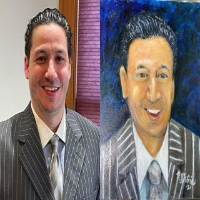Lawrence County, PA Felony Lawyers
Sponsored Law Firm
-
 x
x

Click For More Info:
-
Law Office of Mark S. Guralnick
55 Madison Avenue 4th Floor Morristown, NJ 07960» view mapCriminal Defense Law Dedicated. Fearless. Successful.
Mark S. Guralnick and his legal team have helped clients throughout the USA and across the world by applying unparalleled dedication and hard work to each case.
800-399-8371
Not enough matches for Lawrence Felony lawyer.
Below are all Lawrence lawyers.
Brian Frederick Levine
✓ VERIFIEDOwner of Levine Law, Mr. Levine founded the law firm in 2007 after undertaking judicial clerkships with trial court judges from the Lawrence County Co... (more)
Louis R. Pomerico
✓ VERIFIEDIf you need help with Chapter 7 and Chapter 13, and consolidation of secured or unsecured debt, please do not hesitate to contact Louis Pomerico Esq. ... (more)
FREE CONSULTATION
CONTACTThomas W. Minett
FREE CONSULTATION
CONTACTDallas W. Hartman
FREE CONSULTATION
CONTACTFREE CONSULTATION
CONTACTFREE CONSULTATION
CONTACTMatthew J. Donnelly
FREE CONSULTATION
CONTACTDouglas J. Olcott
FREE CONSULTATION
CONTACT Mark Guralnick Morristown, NJ
Mark Guralnick Morristown, NJ AboutLaw Office of Mark S. Guralnick
AboutLaw Office of Mark S. Guralnick Practice AreasExpertise
Practice AreasExpertise


